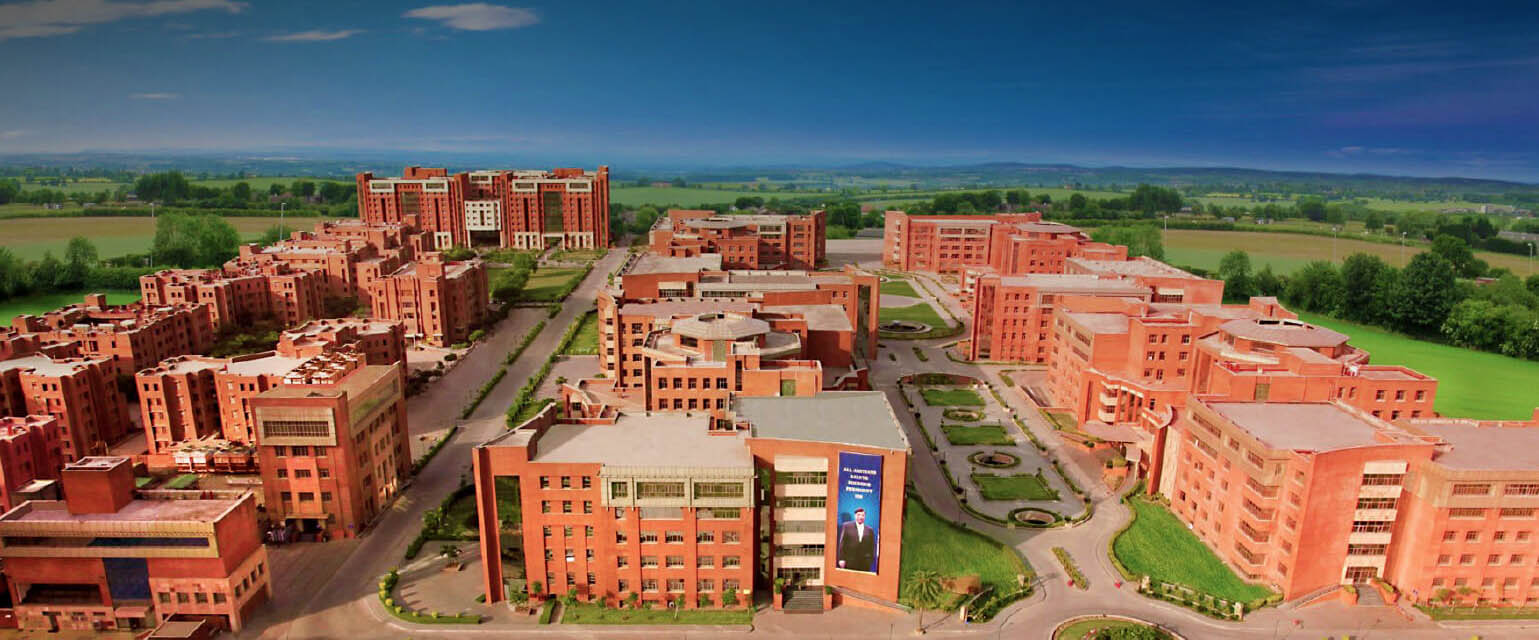Sustainability Development Goals

Amity University's multidimensional strategy, which includes innovative projects, collaborative efforts, and strategic plans, serves as a model for academic institutions across the globe, proving that learning and environmental sustainability can coexist together.
The Sustainable Development Goals (SDGs) represent a universal call to action to end poverty, protect the planet, and ensure prosperity and well-being for all. Adopted by all United Nations Member States in 2015, these 17 interlinked and ambitious goals provide a comprehensive and holistic framework for addressing some of the world's most pressing challenges. The SDGs aim to create a more equitable and sustainable future for people and the planet by 2030. They cover a wide range of critical issues, including poverty, hunger, health, education, gender equality, environmental sustainability, and more. This introduction captures the essence of the SDGs, which serve as a global roadmap for governments, organizations, and individuals to collaborate in building a better and more prosperous world for everyone.
Universities are uniquely placed to lead the cross-sectoral implementation of the SDGs and advance the 2030 agenda. Universities can be important contributors to the achievement of the Sustainable Development Goals through their educational, research, and sustainability efforts, as well as by fostering awareness and engagement in the broader community.
The Zero Water Discharge project at Amity University is one of the institution's signature efforts and a sign of its commitment to water conservation. The institution has drastically decreased its total water footprint by using cutting-edge technology and procedures for water recycling and reuse. Amity's Rainwater Harvesting facility, a sophisticated network of wells placed strategically across the campus, stands out among its water management tools. These wells act as storage facilities for rainfall, thereby converting the campus into a centre for independent water supply. 42 wells, 227 boreholes, and a remarkable capacity of 40,000 litres each well tell eloquently about the scope and ambition of this undertaking.
Beyond water conservation, Amity has made a commitment to creating a "Green Campus." The campus serves as a tangible illustration of sustainable landscaping and infrastructure, encouraging biodiversity and minimising ecological damage. To maintain a peaceful coexistence between infrastructure expansion and environmental preservation, the institution has launched major tree planting campaigns and uses environmentally friendly building techniques.
Amity University is continuously attempting to offset its carbon emissions, with carbon sequestration being a major area of attention. A key component of this initiative, the Solar Energy System, not only powers the campus, but also includes an automated system to track and lower carbon impact. The university's HVAC systems are "Freon Free Gases Emission" certified, demonstrating a dedication to sustainable energy methods.
Another area where Amity University has achieved high standards is waste management. Implementing a thorough waste segregation system guarantees that hazardous trash is handled safely and that recyclables are processed correctly. The institution adheres to a strict hazardous waste management strategy, reducing the effect of potentially hazardous items on the environment. A thorough Environmental Management Plan that fully considers every area of the campus's environmental effect serves as the foundation for these programmes.
Amity University implements a "No Smoking Zone" policy as part of its commitment to environmental excellence, fostering a safe and hygienic workplace for its employees and students. The institution has embraced green computing as well, using tools like VMware to save energy and lessen its negative effects on the environment. Electronic trash is disposed of using authorised R2-certified suppliers, assuring ethical and appropriate disposal techniques. The "Go Green Innovation" award Amity got from N-Computing, which honours the university's innovative achievements in sustainable practises, is a tribute to its dedication to environmental innovation. Classroom sensor-based lighting systems are another example of how technology is incorporated to consume less energy.
The institution has been effective in raising awareness of the crucial need of environmental conservation among all stakeholders via a variety of programmes, teaching styles, and research techniques. Amity University is dedicated to promoting a wider influence, as seen by its collaborations with groups like Namami Gange and relationships with organisations like the Indian Meteorological Department (IMD) and the National Institute of Disaster Management (NIDM). Sustainable practises are promoted and shared via conferences, workshops, seminars, symposiums, Faculty Development Programs (FDPs), and certificate programmes.
© 2023 Amity University. All Rights Reserved.
